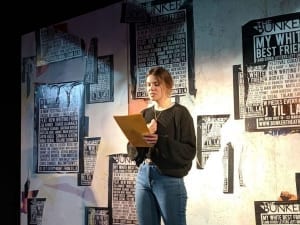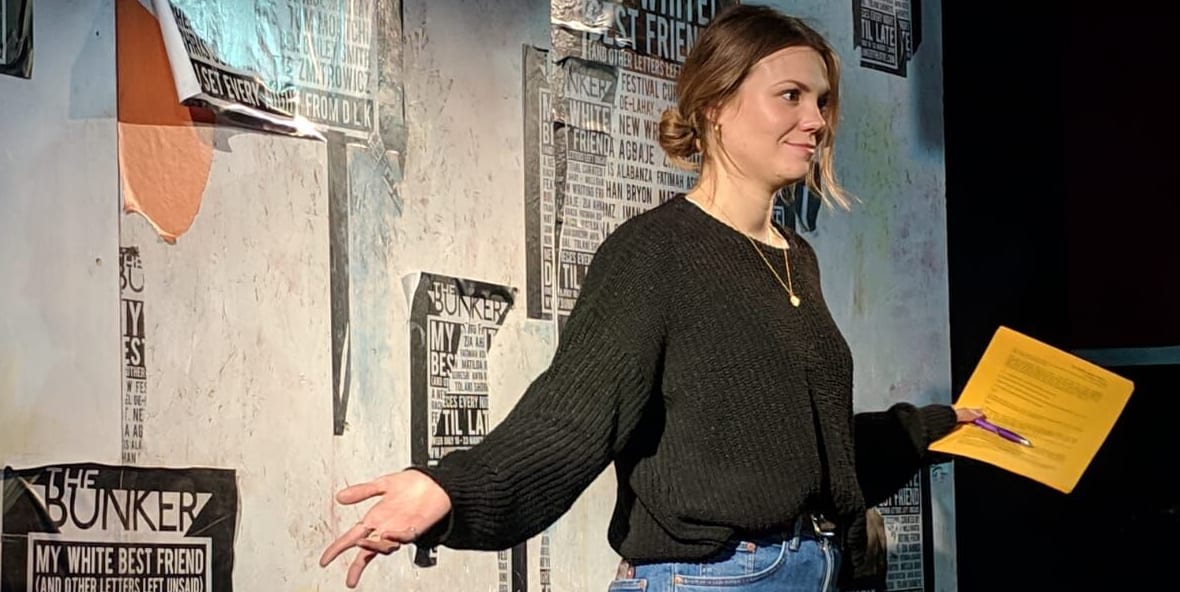This play, or rather event, is more comparable to a stand-up poetry gathering than a conventional theatre performance. The actors read out letters that they have not seen before – it’s completely spontaneous. At times they offer commentary and at other times they purely read what is written. In between each letter there is a five-minute interval where the space resembles a nightclub atmosphere with electronic music and dimmed lights. The music is, however, just low enough to be able to talk to and hear other people – an important feature that allows the audience to digest and think about each letter!
 Upon entering the theatre space, it feels as though you are out in a club. Everything is dark. There is a bar at the side of the room and no visible stage to be found apart from three platforms. Five minutes before each performance, a timer projected on the wall starts counting down. The countdown is an important detail – it adds some excitement to the wait, while it gives the audience a certain timeframe for discussing what they just saw.
Upon entering the theatre space, it feels as though you are out in a club. Everything is dark. There is a bar at the side of the room and no visible stage to be found apart from three platforms. Five minutes before each performance, a timer projected on the wall starts counting down. The countdown is an important detail – it adds some excitement to the wait, while it gives the audience a certain timeframe for discussing what they just saw.
Right at the beginning of the first letter, the author (Rachel De-Lahey) asks coloured women to come to the front, LGBT to go to the middle and white men to go to the back. This metaphorical creation of a reverse order sets the tone for the whole performance – putting marginalised people in the spotlight and letting them talk about their own experiences without interruption.
The concept is extremely interesting; it encourages an appropriate discussion of current societal issues through the sharing of the personal experiences of different parties. There are letters from members of minorities and majorities that all talk about past events and discuss how their appearance is an undeniable influence on their life.
The fact that this is not fiction but the retelling of real-life happenings makes the performances very genuine. The characters that we are presented with are not written by an author, but rather represent themselves. Further, the actors are in the same position as the audience, not knowing the contents of the letter they receive nor whom it is from.
The whole cast (Inès De Clercq, Ben Bailey Smith and Zainab Hasan) deserve their applause. Their reading of the letters was not theatrically staged and involved genuine reactions to the content.
The only downfall is that there are not more letters to be read. The time passes as if fast-forwarded and, even though the audience has to stand throughout the whole show, its captivating style prevents any exhaustion, leaving you craving more.

